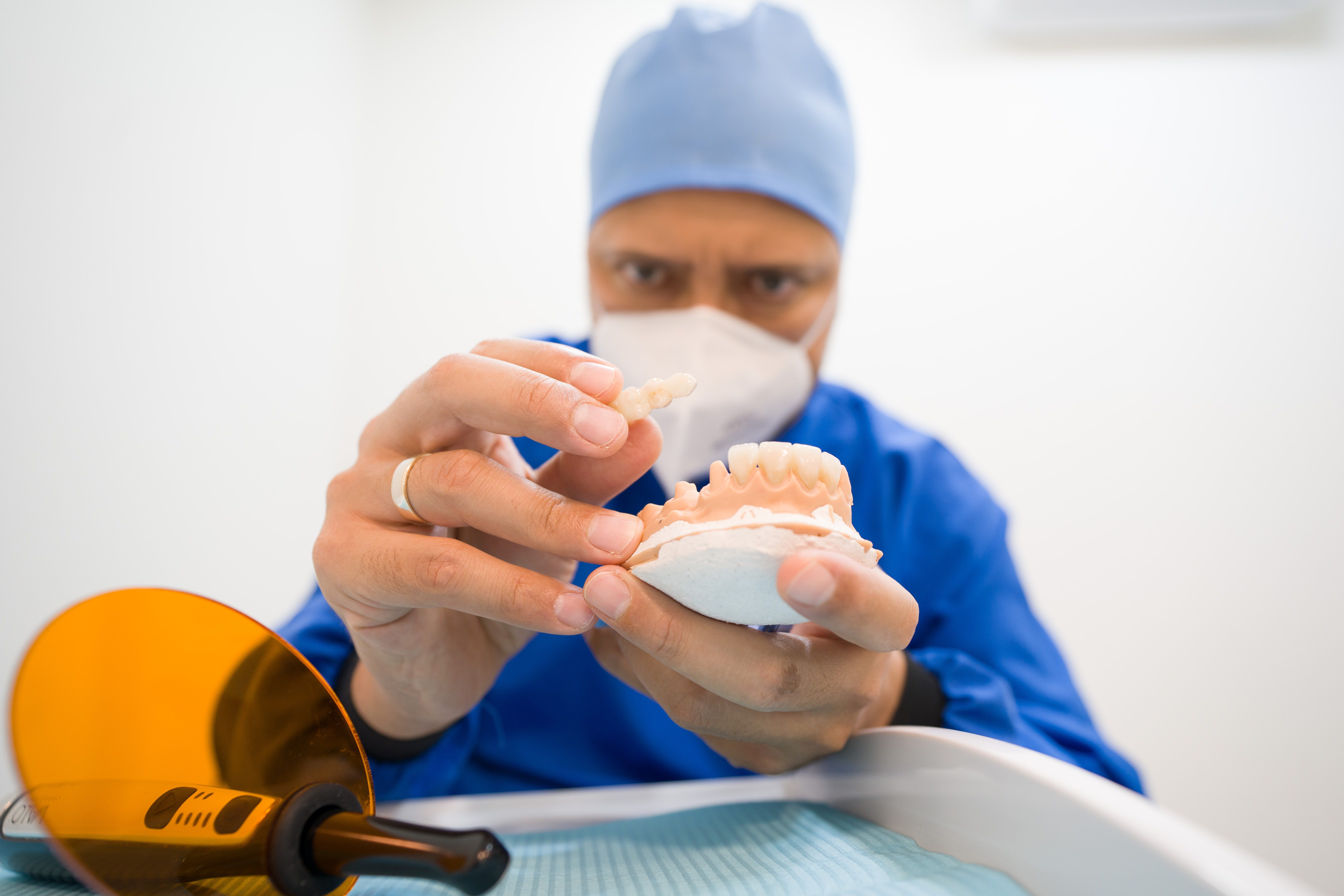Many of us have experienced this before: you’re chewing on a piece of hard candy or some ice when your tongue feels something in your mouth that won’t dissolve or melt – it’s a piece of your tooth! In 2013, the National Dentist Based Practice Research Network conducted a study of cracked teeth in 1,962 participants. The results showed that 66.1% of participants had at least one cracked tooth, with 46.2% having more than one!
Although the enamel that coats your teeth is the strongest material in the human body, it’s not indestructible. Several different injuries can cause a chipped or cracked tooth, such as falling, biting down on something hard, or a blow to the face; the damage to the tooth depends on the type of injury, its severity, and the condition of your teeth. Regardless of how it happens, however, it doesn’t feel good!
Our staff at Advanced Dental Care of Indiana is passionate about the safety of our patients and their smiles, so we’ve compiled this safety guide to care for a chipped tooth at home and what your dentist might be able to do to fix it.
At-Home Care for a Chipped Tooth
It is important to note that any tooth that chips, cracks, or breaks, regardless of where it’s located in your mouth or how much it hurts, needs to be evaluated by a dentist to determine treatment and avoid any further damage such as infection. However, we know it’s not always possible to immediately get to a dentist, but there are some self-care measures you can practice at home while you wait to get in with your dentist.
Immediately after you notice the chip or crack, you should wash your mouth out with warm water to clean your mouth and wash away any blood. After rinsing, if you are still bleeding, apply pressure to the source of the blood with gauze to stop the bleeding. Don’t scrub the area, as that may increase bleeding; simply hold pressure with minimal movement.
Once the bleeding stops, you will need to apply a cold compress to the injured area. The cold temperature of the compress causes blood vessels to constrict, limiting blood flow to that area. This will reduce swelling and alleviate pain. If the cold compress doesn’t completely resolve your pain, you can take an over-the-counter pain reliever such as Advil or Tylenol. You can also apply clove oil to the area, which contains eugenol, a numbing agent.
These steps will help you remain comfortable and relatively pain-free until you can see the dentist. However, you will also need to take steps to protect your mouth and tooth in the meantime. You can do so by applying a piece of dental wax or sugarless gum to the jagged edge of the chipped or cracked tooth. Most drug stores carry over-the-counter temporary tooth repair kits that include dental wax. You should also avoid using the damaged tooth to chew, as you could worsen the injury and your pain.
Dental Procedures for a Chipped Tooth
Once you see your dentist, they will need to evaluate the injury to determine the proper treatment. This will depend on how severely the tooth is damaged. Most mild chips and cracks are repaired with fillings or bondings. A filling is the same procedure used when you have a cavity and is often employed to repair teeth where just a small piece of enamel has broken off.
When the chip or crack occurs in a front tooth, dentists usually perform a treatment called bonding, which occurs in three steps: first, they gently abrade the tooth to make the bonding material adhere. Then, they dab on the adhesive material followed by a tooth colored resin. Lastly, they will reshape your tooth and bond it so that it is the correct size and shape!
If a large piece of your tooth broke off in the injury or if the tooth already has a lot of decay, your dentist may opt for a crown or cap. Dental crowns are designed to protect the damaged tooth, preserve its function, and hide the injury, maintaining aesthetic appearance. Crown treatments require two appointments: during the first, the dentist will prepare the tooth and take impressions that are sent to a lab where the crown is made. The crown is placed and cemented at the second appointment. Crowns may be made from metal, porcelain, resin, or ceramic.
Advanced Dental Care
Our staff at Advanced Dental Care of Indiana knows how scary and painful it can be when a tooth chips or cracks. When emergencies happen, we are here to help! No matter what your oral health concerns are, our staff is here for you. If you have concerns about a chipped or broken tooth, visit our website today to learn more about our services and schedule an appointment!

